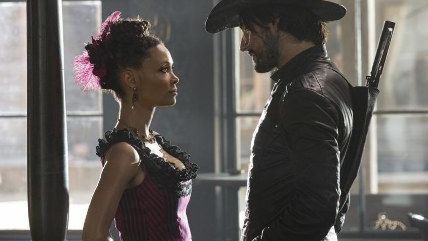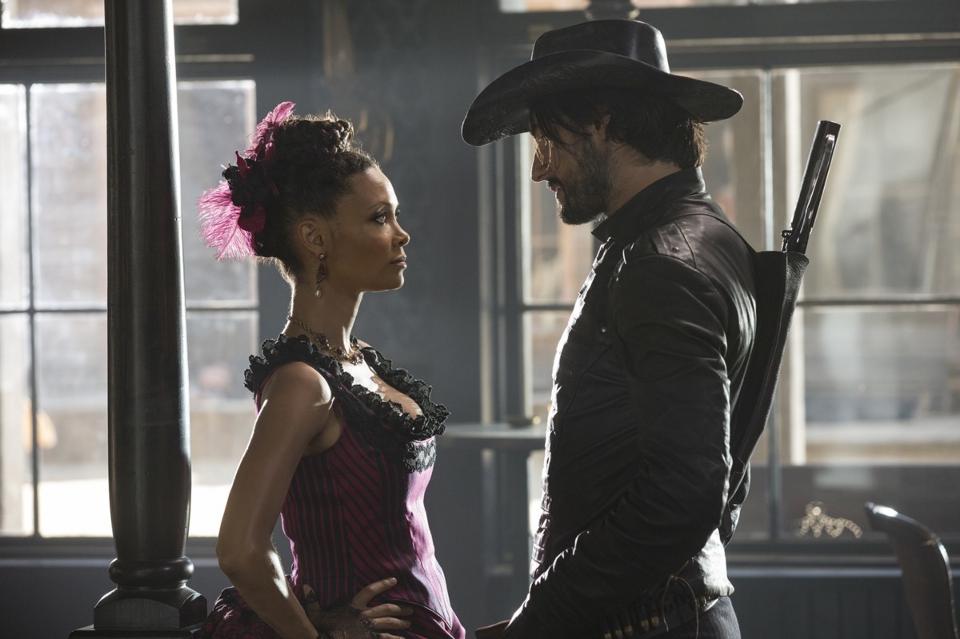The 10 Best TV Shows of 2016
Glenn Garvin's top shows of the year.


The most overused cliche in TV criticism in 2016—and believe me, this is not a designation to bestow casually—was the phrase "peak television." For this we must blame John Landgraf, paterfamilias of the sprawling family of FX cable networks, once regarded as one of the smartest guys in television, now better known as a genocidal threat to TV comedy for unleashing a wave of morose Louie C.K. sitcoms on his defenseless viewers.
Landgraf, at a gathering of TV critics last year, said his industry was drowning in oversupply. "I long ago lost the ability to keep track of every scripted TV series," Landgraf said. "But this year, I finally lost the ability to keep track of every programmer who is in the scripted programming business. …This is simply too much television. My sense is that 2015 or 2016 will represent peak TV in America, and that we'll begin to see declines coming the year after that and beyond."
Journalists immediately inducted Landgraf's words into the Television Hall of Profundities, then quoted them ceaselessly without ever wondering (and certainly without asking) what they meant. Like: Too much for television for whom, exactly? Landgraf and other programming bosses? Undoubtedly. Half a dozen FX shows lost a whopping 20 percent or more of their audiences this year, and the broadcast nets aren't far behind: their viewers all disappeared in double-digit percentages in 2016. Certainly a good chunk of those missing viewers were seduced away by the abundance in programming across the many platforms—broadcast, cable, internet, video-on-demand—that we collectively refer to as "television."
But on the other side of the TV screen—that is, the side where the viewers sit—I've yet to hear a single complaint about "too much television." TV programs are not motor vehicles that careen out of control and kill people (though somebody who accidentally tunes into, say, CBS' Bull, could be forgiven for arguing the contrary). The audience watches what it has the time and interest for and ignores the rest.
Earlier this year, Landgraf's minions at FX, seeking to bolster his point, released a list of 1,415 shows that aired during TV prime-time hours in 2015. (And no, they didn't forget Dog with a Blog or Fat N Furious.) That sounds like a mind-boggling number … until you consider that it's only about a tenth the number of books published in the United States in a typical year. Has anybody delivered a fiery oration on "too many books"?
What the list really proved was that the concept of TV has evolved and expanded quickly and so abruptly in the past five or six years that there's barely any agreement even on the terms of the discussion. The list only included programs from broadcast and cable; Netflix, Hulu, Amazon, Crackle and all the other streaming Internet services were excluded. These services, which began mostly as a device to watch network shows outside the strictures of the cable box, have become a major source of original programming. (Netflix alone produces about 40 of its own shows, more than most broadcast networks.) Landgraf may not consider Orange Is the New Black or House of Cards to be something other than TV, but I doubt that many viewers would agree.
About the only thing that's clear is that the vast audience for home entertainment continues to migrate toward options that allow it the maximum freedom to evade artificial constraints on its time and taste. If television history were written as a miniseries, the main story arc would be the continuous efforts of viewers to use new technology to break out of the box created by TV's origins as a government-protected cartel. In the 1980s and '90s, viewers used cable TV to escape the old three-channel universe and its lowest-common-denominator ethos. Now they're employing television's new cyberspace incarnation to cut the cord and break out of the usurious rates devised by a cable industry that was granted monopoly status by municipal governments greedy for franchise fees.
What Landgraf sees as a peak is actually a mass act of liberation. And it has engendered an ever-better environment of television programming, some of the best of it devised by Landgraf and his FX colleagues. My choices for the year's 10 best:
10. (tie)Patria O Muerte: Cuba, Fatherland or Death (HBO), BrainDead (CBS) and The Good Place (NBC). Three murderous critiques of state power, two of them played for laughs. The Good Place mockingly conceives the afterlife as a utopian playground designed by central planners and administered by celestial commissars; it doesn't work out any better for them than it did for Stalin. BrainDead, in which the brains of virtually every politician in Washington were eaten by parasitical space bugs, didn't get the ratings it deserved, possibly because in the bizarro world of 2016, it often seemed to be competing with the evening news. But there was nothing funny at all about Patria O Muerte, a documentary in which the testimony of ordinary Cubans, huddled in the rubble of their own homes, lays bare the barbaric idiocy of the wave of American parlor pinks who chatter about visiting this barbed-wire paradise before it's ruined by Starbucks.
9. Westworld (HBO). Whether you see it as a clinical dissection of creation myths, an ambiguous essay on the nature of free will, or a lascivious ode to the joys of robot sex, this oat opera about a cyborg-populated amusement park going off the rails is big-ticket television.
8. The Big Bang Theory (CBS). The decision for this brilliant but childish collection of Cal Tech nerds to grow into actual adults getting married and having babies has paid off big: In its ninth season, Big Bang is the No. 1 show in the Nielsen ratings.
7. Hitchcock/Truffaut (HBO). It's a simple idea: Two epochal directors chat about their work, their points illustrated with abundant clips. But the result is possibly the best documentary ever made about filmmaking.
6. The Night Of (HBO). Scripted by Richard Price and by turns cynical, angry, bleak, and weary, this noir account of a murder case lurching through New York City's criminal justice system is as riveting as it is depressing.
5. Better Call Saul (AMC). It no longer seems important or even relevant to label Better Call Saul a prequel to the drug-kingpin drama Breaking Bad. In its second season, Bob Odenkirk's performance as a sleazy lawyer in the making has created a character so compelling that he stands completely alone—and very, very tall.
4. Preacher (AMC) and 3. Lucifer (Fox). Corporate and aesthetic cousins (they're based on titles from the same family of DC Comics), Preacher and Lucifer offer similar mixes of sly humor, cross-eyed theology and curiosity about the nature of evil and punishment. And while I doubt if Notre Dame's theology department is going to adopt the views of God as indifferent or at least hopelessly distracted (Preacher) or as a divine Tony Soprano (Lucifer), that doesn't mean they aren't thoughtful and provocative, however anarchic their trappings.
2. The People v. O.J. Simpson (FX). More watchable, even, than the trial itself, Ryan Murphy's epic miniseries brilliantly traced the themes of race, class, gender and American media obsession that ran through the Simpson case while etching indelible portraits of the insatiably ambitious prosecutors and the bombastically egotistical defense attorneys.
1. The Americans (FX). With Showtime's Homeland not airing this year (it will return in early 2017), this series about suburban Soviet moles became not just the best spy show on television but the best show, period. To the ongoing collisions over politics, culture, and national identity, The Americans added a new one this season: the religious temptation, as one of the spy couple's teenage children joined a church. I can't wait for the crossover episode with Lucifer.


Show Comments (84)